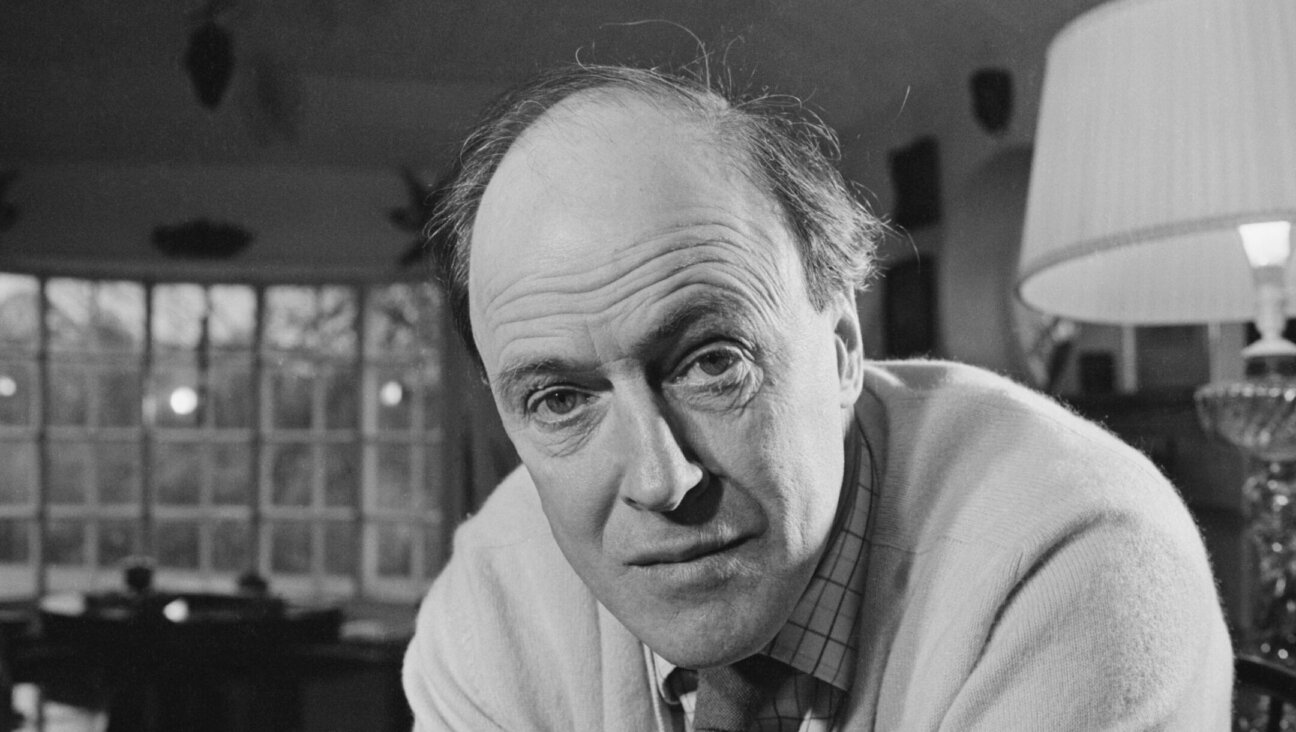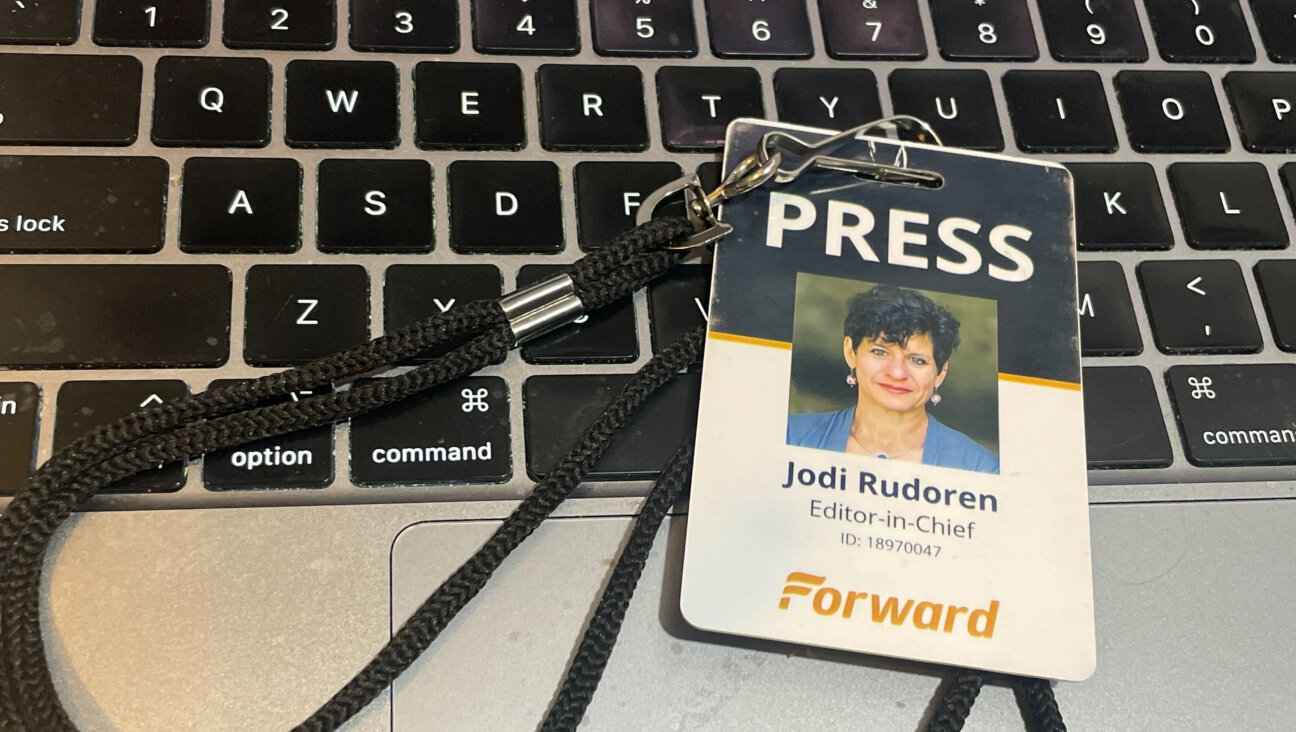Why We Use the ‘U-Word’ to Describe Very Observant Orthodox

Outliers: Are these Jews beyond the regular, the center of our faith? Image by Getty Images
The debate prompted by Rabbi Avi Shafran’s request published last week — “Don’t Call Us ‘Ultra-Orthodox,’” as its online headline read — is not a new one, but this will be the first time in more than five years as editor-in-chief that I publicly provide an answer and an explanation.
The Forward will continue to use the term. Here’s why.
Shafran, in his usual elegant style, argues that “ultra” is pejorative, denoting a negative extreme, telegraphing “a subconscious bias.”
The prefix can be seen that way, but just as often in modern parlance, it connotes something desirable, a positive extreme. Look up “ultra thin” and you instantly find the phrase trumpeting everything from military ribbons to computer mouses to condoms.
But it does describe a state of being beyond the regular, the center, the normative. That’s why I have to respectfully disagree with Shafran’s request — that his community simply be called Orthodox. “Our beliefs and practices, after all, are those that most resemble those of our grandparents,” he argues.
Well, not my grandparents, who were strictly observant Orthodox Jews, but did not dress, act, or think like the Jews of Boro Park and Crown Heights today. It is the refusal to engage in the modern, secular world, to partake of its culture, acknowledge its obligations and respect its differences that set apart the ultra-Orthodox. It is a choice the rest of us Jews must strive to understand, appreciate and learn from, but it is not normative Judaism. Or even normative Orthodoxy.
Some Jewish news outlets use the term Haredi (“trembling”), as does the Forward on second reference. But we write for the broader American public, and that term is hard enough for most non-Jews to pronounce and spell, let alone understand.
There is great value in referring to people and communities the way they refer to themselves. There is an even greater value in presenting the complex Jewish world as accurately as possible. Unless a better phrase is found, ultra-Orthodox remains.
The Forward is free to read, but it isn’t free to produce

I hope you appreciated this article. Before you go, I’d like to ask you to please support the Forward.
At a time when other newsrooms are closing or cutting back, the Forward has removed its paywall and invested additional resources to report on the ground from Israel and around the U.S. on the impact of the war, rising antisemitism and polarized discourse.
Readers like you make it all possible. We’ve started our Passover Fundraising Drive, and we need 1,800 readers like you to step up to support the Forward by April 21. Members of the Forward board are even matching the first 1,000 gifts, up to $70,000.
This is a great time to support independent Jewish journalism, because every dollar goes twice as far.
— Rachel Fishman Feddersen, Publisher and CEO
2X match on all Passover gifts!
Most Popular
- 1

Fast Forward Cory Booker proclaims, ‘Hineni’ — I am here — 19 hours into anti-Trump Senate speech
- 2

Opinion Trump’s Israel tariffs are a BDS dream come true — can Netanyahu make him rethink them?
- 3

Fast Forward Cory Booker’s rabbi has notes on Booker’s 25-hour speech
- 4

News Rabbis revolt over LGBTQ+ club, exposing fight over queer acceptance at Yeshiva University
In Case You Missed It
-

Fast Forward Trump says US has begun direct talks with Iran over its nuclear program
-

Fast Forward In new letter, Mahmoud Khalil downplays campus antisemitism and accuses some students of ‘participating in the genocide’
-

Fast Forward Play about Roald Dahl’s antisemitism wins 3 Olivier Awards
-

Opinion A legacy of defiance: Why I’m holding my Seder in one of the oldest Black churches in the country
-
Shop the Forward Store
100% of profits support our journalism
Republish This Story
Please read before republishing
We’re happy to make this story available to republish for free, unless it originated with JTA, Haaretz or another publication (as indicated on the article) and as long as you follow our guidelines.
You must comply with the following:
- Credit the Forward
- Retain our pixel
- Preserve our canonical link in Google search
- Add a noindex tag in Google search
See our full guidelines for more information, and this guide for detail about canonical URLs.
To republish, copy the HTML by clicking on the yellow button to the right; it includes our tracking pixel, all paragraph styles and hyperlinks, the author byline and credit to the Forward. It does not include images; to avoid copyright violations, you must add them manually, following our guidelines. Please email us at [email protected], subject line “republish,” with any questions or to let us know what stories you’re picking up.















